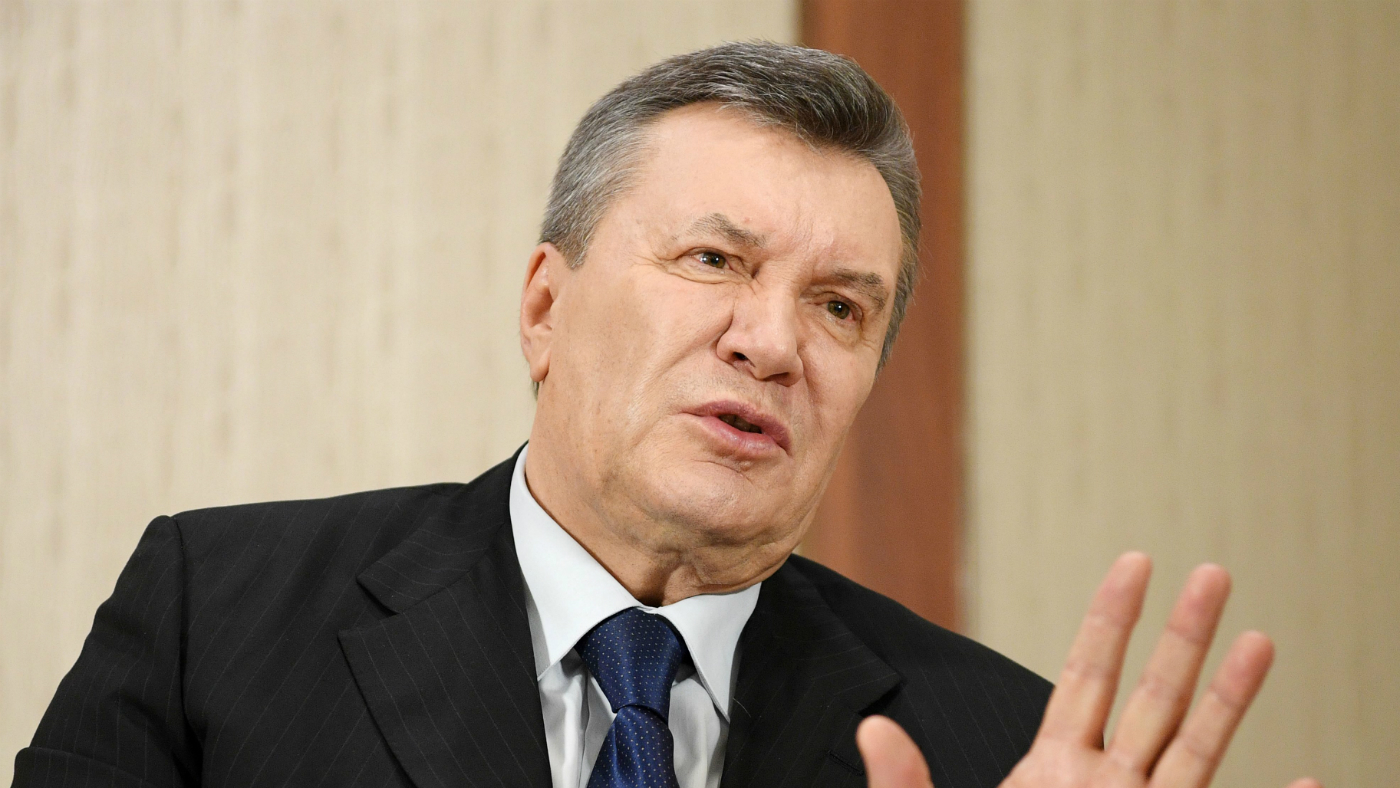Why is Viktor Yanukovych of Ukraine on trial for treason?
The former president refuses to leave Russia, but his country is determined to see justice done

A free daily email with the biggest news stories of the day – and the best features from TheWeek.com
You are now subscribed
Your newsletter sign-up was successful
The trial of Ukraine's former president Viktor Yanukovych for alleged treason was supposed to bring closure to a nation struggling with its blood-stained past. Instead, it may bring further despair.
Who is Viktor Yanukovych?
Russian-speaking Yanukovych began his political career as a transport executive in the Soviet Union's coal-mining industry before becoming the governor of Donetsk in eastern Ukraine - now a "war zone" controlled by pro-Russian separatists, says Business Insider.
The Week
Escape your echo chamber. Get the facts behind the news, plus analysis from multiple perspectives.

Sign up for The Week's Free Newsletters
From our morning news briefing to a weekly Good News Newsletter, get the best of The Week delivered directly to your inbox.
From our morning news briefing to a weekly Good News Newsletter, get the best of The Week delivered directly to your inbox.
He became prime minister in 2002 and stood for the presidency in 2004, but his victory was declared "fraudulent", reports the BBC, and he had to wait until 2010 to claim his prize.
Four years later, however, he was ousted from power and now lives in Russia under self-imposed exile
What led to his downfall?
In 2013, Ukraine was on the verge of signing a deal to deepen trade ties with the EU. Instead, Yanukovych struck an agreement with Vladimir Putin for a Russian bailout, negotiating $15bn in debt relief and a reduction in the price of Russian-supplied gas, reports The Guardian.
A free daily email with the biggest news stories of the day – and the best features from TheWeek.com
Student protests were organised to force the president to sign the EU agreement, leading to the "Maidan massacre" on 20 February 2014, when more than 50 protesters were shot dead by armed riot police in Kiev's Maidan square.
Nevertheless, the so-called "Revolution of Honour" overthrew the government and sparked a counter-revolution in Ukraine's eastern Donbas region, while Yanukovych fled to Russia with the assistance of Russian President Vladimir Putin.
Seizing upon Ukraine's instability, Putin moved to annex the former Soviet territory Crimea. The Kremlin is also believed to have lent support to pro-separatist forces in eastern Ukraine.
What is Yanukovych accused of?
Yanukovych faces charges of "encroaching on the territorial integrity of Ukraine… high treason… and waging aggressive military actions", reports the Kyiv Post.
According to German broadcaster Deutsche Welle, this refers to the accusation the former president "aided Russia in carrying out an attack on his country."
Specifically, he is accused of "invoking the help of Russia to suppress the [2014] protest against him and his pro-Russian policies", says Newsweek, with Deutsche Welle reporting that prosecutors have letters from Yanukovych to Putin asking for Russian troops to be sent to Ukraine.
In addition, Yanukovych also faces separate accusations of corruption and embezzlement, reports The Economist.
What is his position?
Yanukovych initially denied the existence of formal charges and then refused to participate in the trial, arguing the charges are politically motivated and that Western intelligence agencies plotted to overthrow him.
“It’s not a court, but a sham, pure and simple", he said, claiming "the outcome [had been] determined in advance".
What bearing will the case have?
The resumption of the treason trial today, following several adjournments, "promises to be a damp squib", writes Jonathan Eyal of the Strait Times. "Most Ukrainians are concerned with the drudgery of their daily existence, rather than raking over past events."
Those hoping to see their former leader in the dock will also be disappointed. The 67-year-old politician refuses to attend court in Kiev and will be tried in absentia.
"It is unlikely that Mr Yanukovych will ever be extradited from Russia even if he is convicted, which itself is hardly guaranteed", says the Economist.
Nevertheless, commentators regard the event as an important symbolic exercise, while Kiev "hopes that a guilty verdict will pile more diplomatic pressure on Moscow [regarding] its backing of the three-year insurgency in eastern Ukraine", the Arab News says.